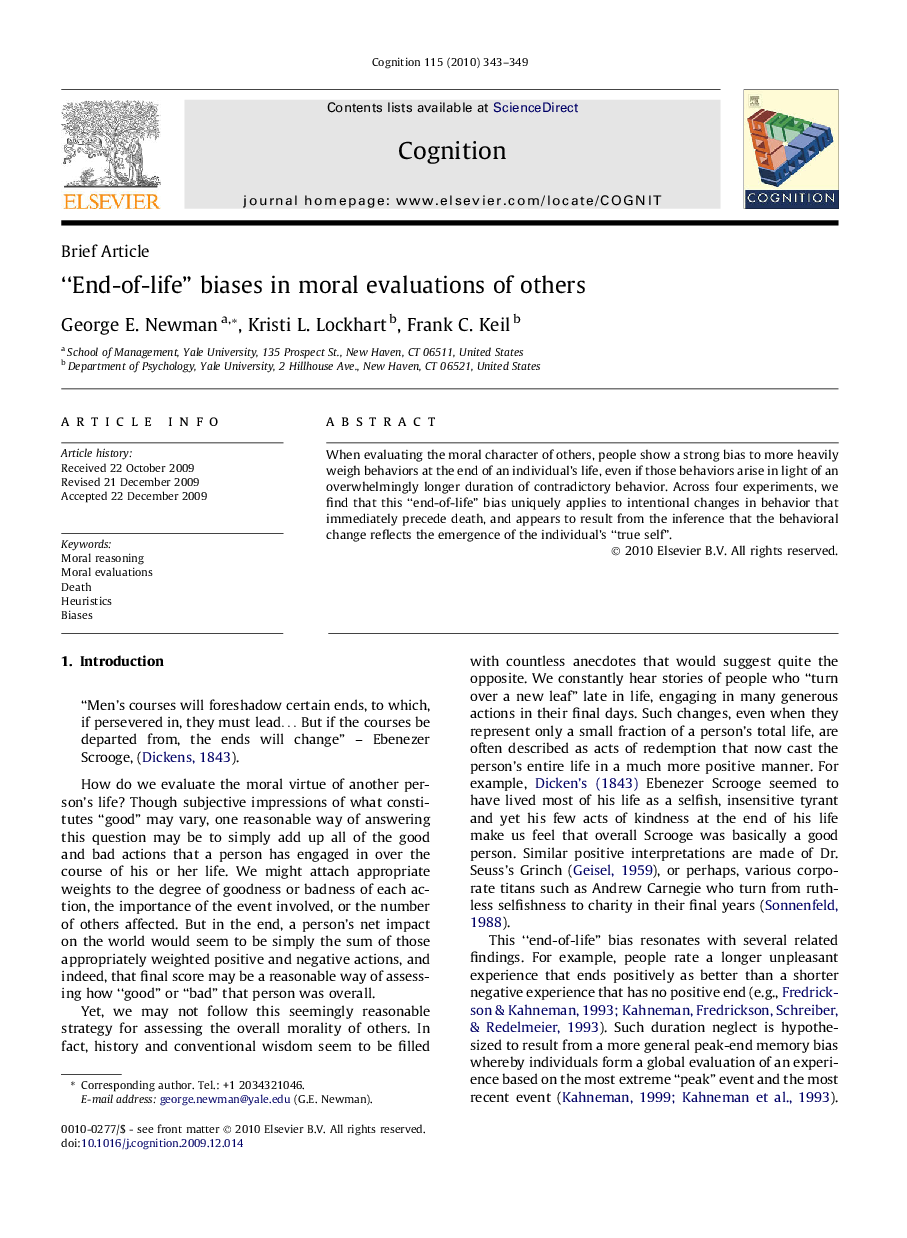| Article ID | Journal | Published Year | Pages | File Type |
|---|---|---|---|---|
| 927007 | Cognition | 2010 | 7 Pages |
Abstract
When evaluating the moral character of others, people show a strong bias to more heavily weigh behaviors at the end of an individual’s life, even if those behaviors arise in light of an overwhelmingly longer duration of contradictory behavior. Across four experiments, we find that this “end-of-life” bias uniquely applies to intentional changes in behavior that immediately precede death, and appears to result from the inference that the behavioral change reflects the emergence of the individual’s “true self”.
Keywords
Related Topics
Life Sciences
Neuroscience
Cognitive Neuroscience
Authors
George E. Newman, Kristi L. Lockhart, Frank C. Keil,
